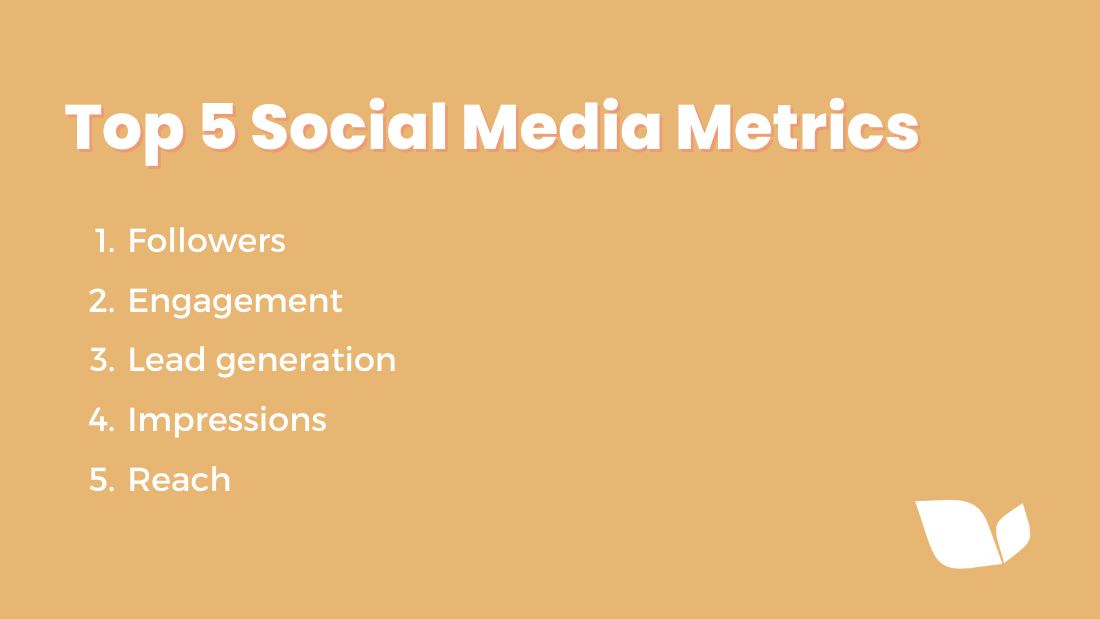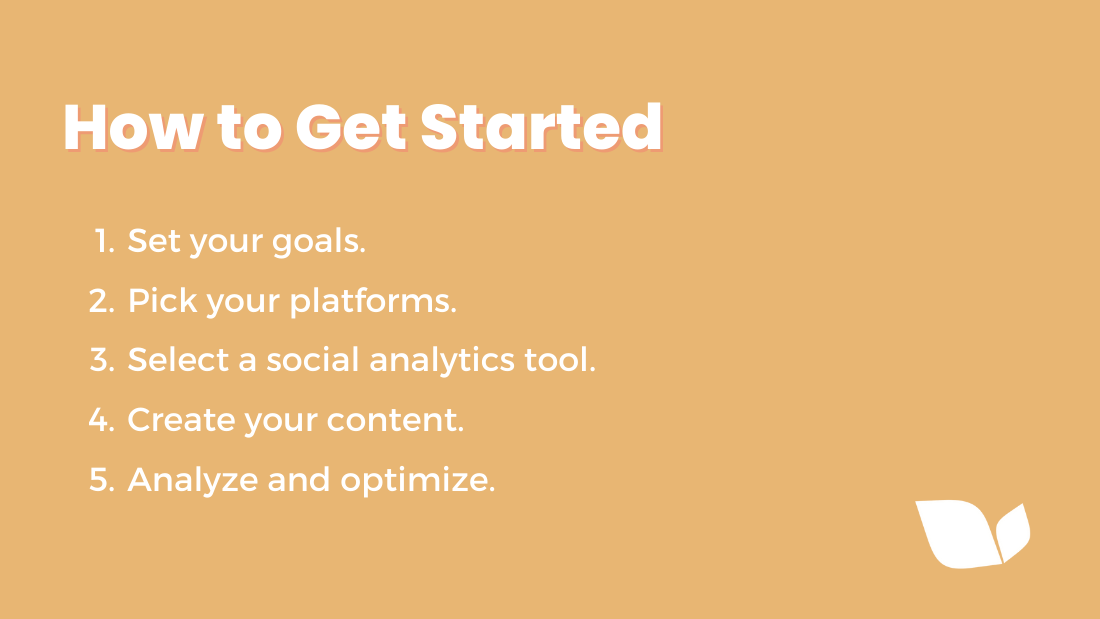Best Social Media Metrics For Businesses to Track

Ask any seasoned social media manager, and they’ll tell you successful business social media marketing requires a strong understanding of metrics.
But which metrics are the most important to track?
In this blog, we list the 5 social media metrics our marketing team finds the most useful and explain how to get started with your social media analysis.

1. Followers
Some marketers choose not to track follower growth because it is a vanity metric. In other words, it does not directly measure your return on investment (ROI).
Yet, when trying to leverage social media for your business, building a following is the inevitable first step. Without a strong pool of followers, your posts and ads won’t get the engagement you’re hoping for. Thus, other kinds of social media metrics will be irrelevant.
By tracking how many followers you gain (or lose) each month, you can gauge your company’s brand awareness and determine which kinds of content engage (or repel) potential customers.
2. Engagement
Once you gain some followers, you need to start watching how people interact with your content. Social media metrics like comments, likes, shares/reposts, and saves can show you which posts are most engaging and effective for building brand awareness and attracting new customers.
Each engagement metric tells you something different about your posts and customer base.
-
Likes show your audience enjoys your content.
-
Comments provide a glimpse of customers’ questions, needs, and personalities.
-
Saves and shares suggest that your audience finds your content useful.
3. Lead Generation
Engagement metrics track content effectiveness solely based on actions taken within social media platforms (like Facebook, Instagram, and TikTok). But these aren’t the only interactions worth monitoring.
Odds are your ultimate goal is to gain more customers for your business. So, it’s essential to routinely assess lead generation metrics like website traffic, leads, conversions rates, and sales. This data can help you determine which content and social media platforms work best for your company and customer base.
4. Impression
Impressions are the best measure of social media exposure, tracking the number of times a post or ad appears in front of users.
This metric is critical if social media ads or boosted posts are part of your marketing plan. Impressions show you how far your ad spend is actually going and help optimize your ad budget. Social media algorithms are complex. But post impressions provide insight into the kind of content that performs best on each platform.
Remember, impressions are measured differently depending on the social media platform. You’ll want to make sure you understand exactly what each platform considers an “impression” before diving deep into your analysis.
5. Reach
Often confused with impressions, a post’s reach describes its “unique” viewers (i.e. the number of people who have seen your post). Your reach is going to be lower than your impressions. Why? A single user often sees the same post several times.
If your primary goal is building brand awareness, reach is the metric to look out for.

How to analyze social media metrics
If you’re new to social media marketing, analyzing metrics like engagement and lead generation may seem like a lot of work. And it is! But there are some things you can do to make it easier.
Follow these steps to optimize your social media strategy:
1. Set specific goals.
Jumping into social media marketing blindly is a good way to waste money. The first thing you need to do is define your goals…
-
Do you need to start by gaining more followers?
-
What’s more important to you right now: building brand awareness or attracting more prospects to your website?
-
How much money do you have to work with?
-
How quickly do you need to achieve your goal(s)?
Your answers to these questions will impact both your goals and the type of social media content you should post.
2. Choose your platforms.
Do some research to determine which social media platforms are ideal for your industry. With the current popularity of short form video, consider using platforms like TikTok and Instagram. Facebook and LinkedIn can be effective for many businesses – both large and small.
3. Find a good social media analytics tool.
Social media platforms offer limited analytics for business social media managers. If you want to track lead generation data (like website visitors or conversions), you’re going to need a third party analytics tool, such as Google Analytics, Hootsuite, or HubSpot.
4. Content creation time!
You’ve made your plan. Now, it’s time to let your creative juices flow.
There are several types of social media posts you might consider trying, including (but not limited to)...
-
Short-form videos and reels
-
Employee or customer highlights
-
Behind-the-scenes features
-
Product features
-
Brand development posts
-
Educational or tip posts
-
Conversation starters
To maintain a consistent social media presence, you’ll want to post several times a week. Most successful social media marketers find that it’s easiest to stick to a social media plan if they create a social media calendar. The calendar should list the topics and dates of the posts you plan to make over the course of a few months.
5. Start tracking your progress.
Once you’ve made your first post, you can start tracking metrics through your social media analytics software or social media platforms. But, you will need to gather several months of data to make any meaningful conclusions based on your results.
When examining your results, consider the following questions:
-
Which marketing metrics tell you the most about your marketing efforts?
-
Does your chosen analytics tool provide helpful data?
-
Which types of social media content perform the best?
-
Which social media platforms seem to be gaining the most traction?
-
If you see little or no progress, how can you change up your approach?
BlueTone Media | Social Media Creators & Managers
Effective social media management can be time-consuming. Not only do you have to develop the visuals and text of the posts. But to ensure your success, you’ve got to spend time each month analyzing social media metrics and reevaluating your technique.
And unless you can afford to hire an internal social media manager, odds are you probably don’t have the capacity to do all this.
That’s where the BlueTone Media marketing team comes in!
Our specialty is helping small to medium-sized businesses excel in their marketing efforts. We handle everything, from SEO and blog creation to paid advertising and social media marketing.
Let us give you a hand with your digital marketing. Contact us today for a FREE initial consultation.
READ MORE:

